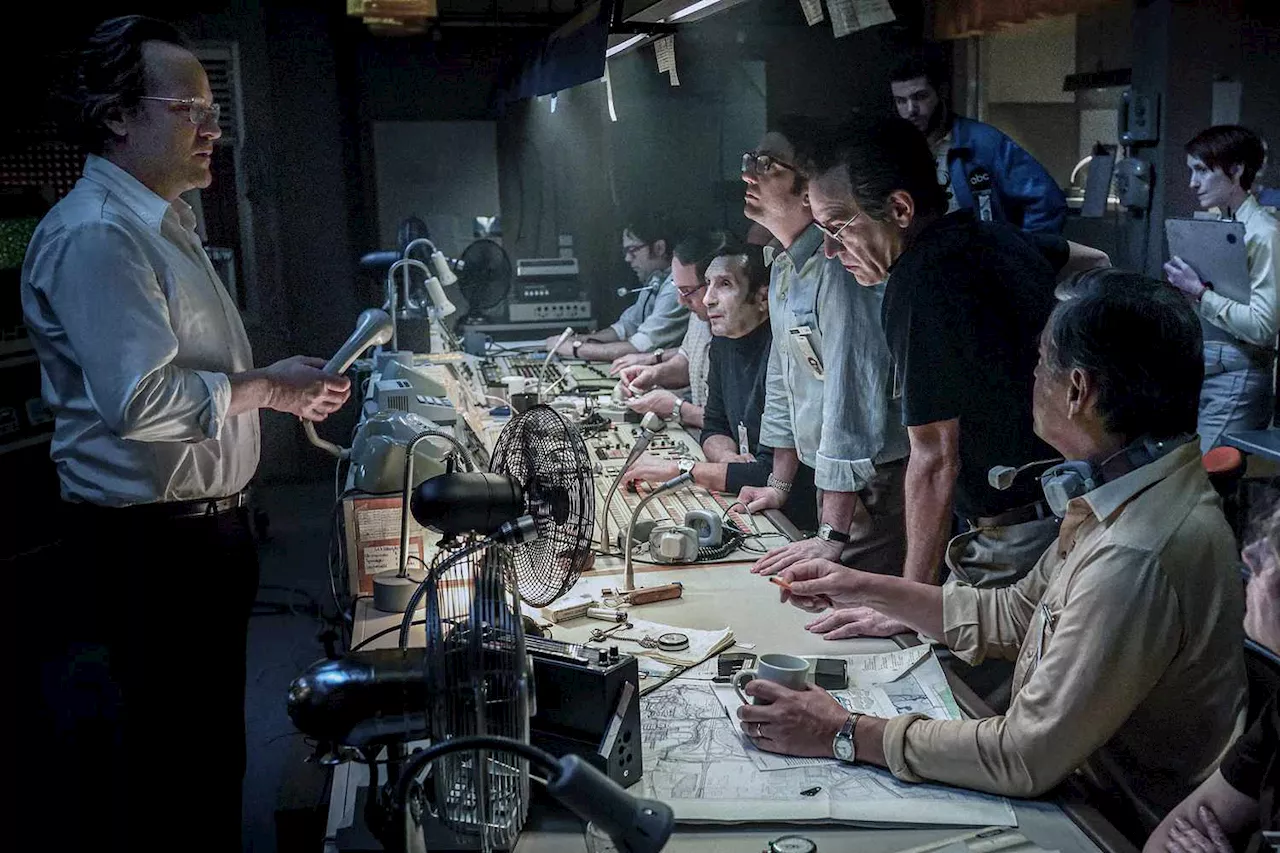This article delves into the making of the film 'September 5', a dramatization of the 1972 Munich Olympics hostage crisis, focusing on the experiences of the actors John Magaro and Steve Zahn who portray journalists covering this pivotal event. The piece highlights Magaro's deeper understanding of the news world and the ethical complexities of covering tragedy in real-time, while also exploring the historical context of live broadcast journalism and its evolution.
Lauren Huff is a writer at Entertainment Weekly with over a decade of experience covering all facets of the entertainment industry. After graduating with honors from the University of Texas at Austin, Lauren wrote about film, television, awards season, music, and more for the likes of The Hollywood Reporter, Deadline Hollywood, Us Weekly, Awards Circuit, and others before landing at EW in May 2019.
Set amid the Israeli hostage situation at the 1972 Munich Olympics, the film is told from the perspective of an ABC Sports broadcasting crew that quickly shifted from their planned coverage of the games to following the unfolding crisis. Magaro plays the young, ambitious TV producer Geoffrey Mason, eager to prove himself to his boss, the legendary TV executive Roone Arledge (Sarsgaard). While it's something of a breakout role for Magaro, it's not the first time he's been in a movie that explores this historical event. Twenty years ago, he was an extra in Steven Spielberg's 'Munich.' This new project, however, allows him to delve deeper into the story and its impact, both personally and professionally. Magaro's interest in this specific historical event stems from a place of empathy and a desire to understand the complexities of the situation.'He is really somebody that believes that the path to social justice is information and accurate information, and I just have an enormous amount of respect for people who are out there now who do that,' Sarsgaard tells. 'I think for me, it's something I've always really valued. There's some world in which I wish I were a journalist. I've always had so much respect for journalists with good intentions. I really think it's an incredibly noble thing to do.' Their own connections and knowledge of the source material aside, playing these real-life journalists wouldn't have been possible without going straight to the source. Though Arledge died in 2002, the real Geoff Mason was an invaluable resource to the production, from advising on drafts of the script to helping secure rights to the original broadcast footage. 'He was such a resource,' Magaro says of Mason. 'Not only did he share his firsthand accounts, but he got me into CBS Sunday football and some ESPN basketball games where I was able to shadow directors and producers and really learn the tone of that room, the language of the room, the shorthand they use. For me, it was really valuable to have that opportunity to shadow them and it made my job so much easier on the day.' He adds of the experience, 'Once that ball gets rolling, it doesn't stop. And the economy of language and the calling of a show, the focus, the tone of the room, the buzz — it's just a very visceral thing, and I let it kind of sink into my pores so I could do it on the day.' Beyond the technical aspects of managing live TV, Sarsgaard says he struggled internally with the concept of covering a violent crisis live on air. 'I would think, why does it have to be live?' he says. 'I understand why a sporting event is interesting to be live because you get the results of what's happening there in real-time, but wouldn't we get the same information without a live camera from this thing?' He continues, 'It feels naive to me. It feels like maybe the live camera wasn't meant for moments like this, and he just had a new toy and he pointed it at it. Maybe it was for different reasons. It's not something I ever really answered in my head. But I do think that now we have Facebook Live and all this sort of stuff, that the genie's been let out of the bottle, and it's everywhere, you can witness atrocities live, no problem.' Sitting next to Sarsgaard for this interview, Magaro nods in agreement. 'I don't think anyone asks that question anymore. You point and click your phone at someone being beaten up and then immediately post it onto social media and there's no thought of...' he says, trailing off before Sarsgaard finishes his sentence: 'Is this appropriate? Is this helpful? Is this advancing the world we live in? It has to do with our taste for violence, I think also, which, the sooner you acknowledge it, the more you can deal with it.' While modern journalists are now accustomed to grappling with these questions, the Munich hostage situation marked one of the first times a crisis of its kind was broadcast on live TV. 'There's something lovely about these characters, I think, because they're so innocent about it,' Sarsgaard says. 'It's almost quaint in a way, looking back at the birth of this style of news media and it's kind of folksy almost,' Magaro adds.Overall, Magaro says he left this project with a 'greater appreciation for all the effort and all the dedication that goes into' breaking news. But he also says the film 'changed the way I view tragedies, how the news covers tragedies, that it's so readily available, and I realized that I've become desensitized to it.
September 5 John Magaro Steve Zahn Munich Olympics Crisis Journalism Live Broadcast News Coverage Film Review
United States Latest News, United States Headlines
Similar News:You can also read news stories similar to this one that we have collected from other news sources.
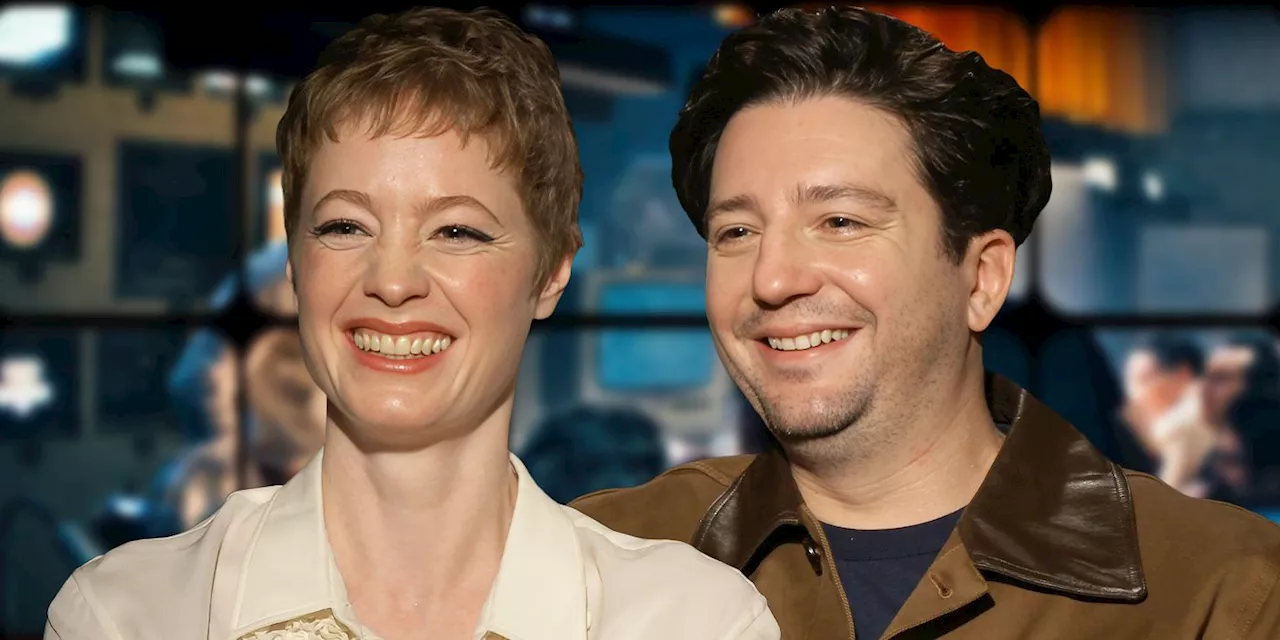 September 5: Behind-the-Scenes Drama at the Munich OlympicsActor John Magaro and Leonie Benesch discuss their roles in the upcoming film 'September 5', which focuses on the ABC Sports crew's coverage of the 1972 Munich Olympic hostage crisis.
September 5: Behind-the-Scenes Drama at the Munich OlympicsActor John Magaro and Leonie Benesch discuss their roles in the upcoming film 'September 5', which focuses on the ABC Sports crew's coverage of the 1972 Munich Olympic hostage crisis.
Read more »
 Angelina Jolie's Children Find Their Passion Behind the ScenesAngelina Jolie's children are following in her footsteps, but their focus is on behind-the-scenes work rather than acting.
Angelina Jolie's Children Find Their Passion Behind the ScenesAngelina Jolie's children are following in her footsteps, but their focus is on behind-the-scenes work rather than acting.
Read more »
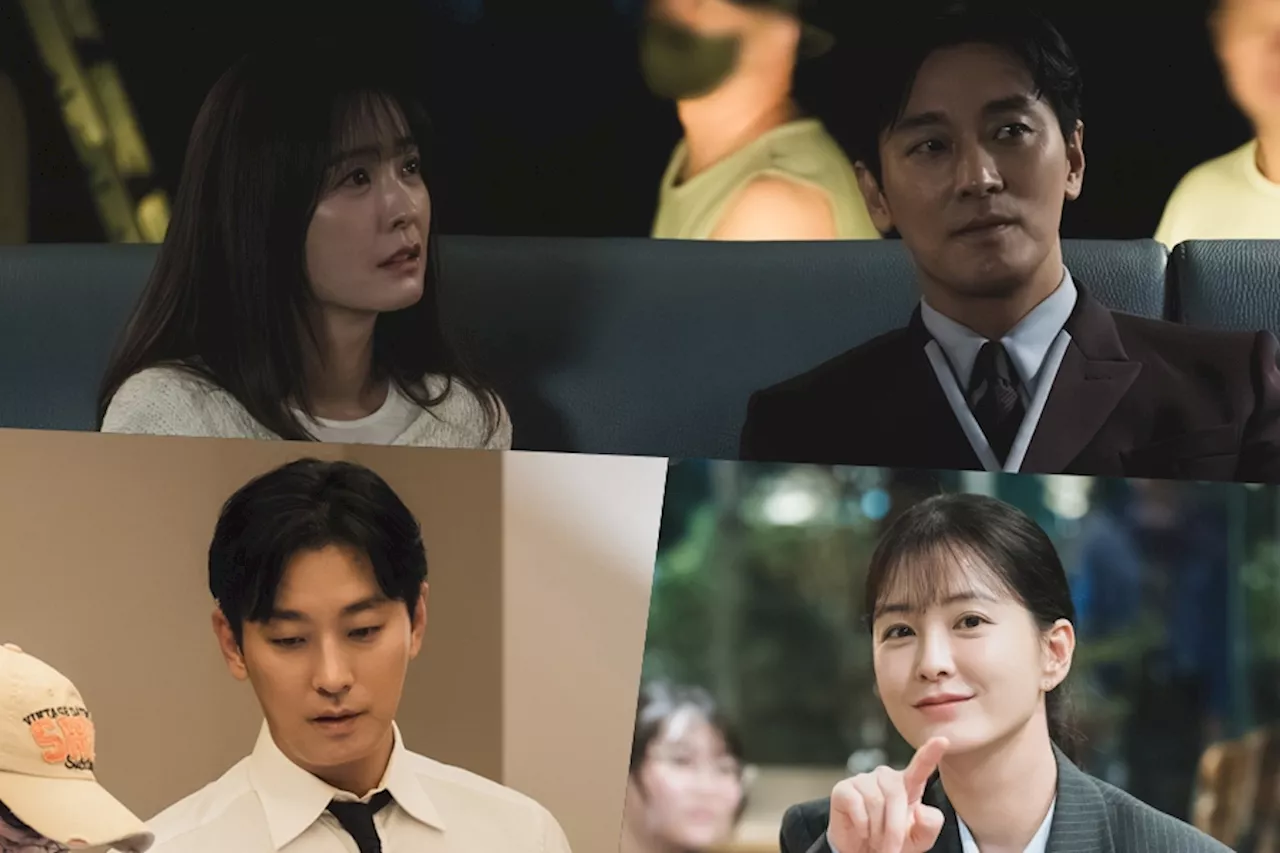 Love Your Enemy: Behind-the-Scenes Chemistry Fuels Romantic DramaThe Korean romantic comedy 'Love Your Enemy' is captivating audiences with its intense romance and witty exchanges between leads Ju Ji Hoon and Jung Yu Mi. Behind-the-scenes photos reveal the actors' dedication to their craft and the director's skillful guidance, creating undeniable on-screen chemistry.
Love Your Enemy: Behind-the-Scenes Chemistry Fuels Romantic DramaThe Korean romantic comedy 'Love Your Enemy' is captivating audiences with its intense romance and witty exchanges between leads Ju Ji Hoon and Jung Yu Mi. Behind-the-scenes photos reveal the actors' dedication to their craft and the director's skillful guidance, creating undeniable on-screen chemistry.
Read more »
AI working behind the scenes at San Antonio's biggest companiesCompanies across the city are quietly rolling AI technologies into their businesses to help behind the scenes in ways that are largely transparent to customers.
Read more »
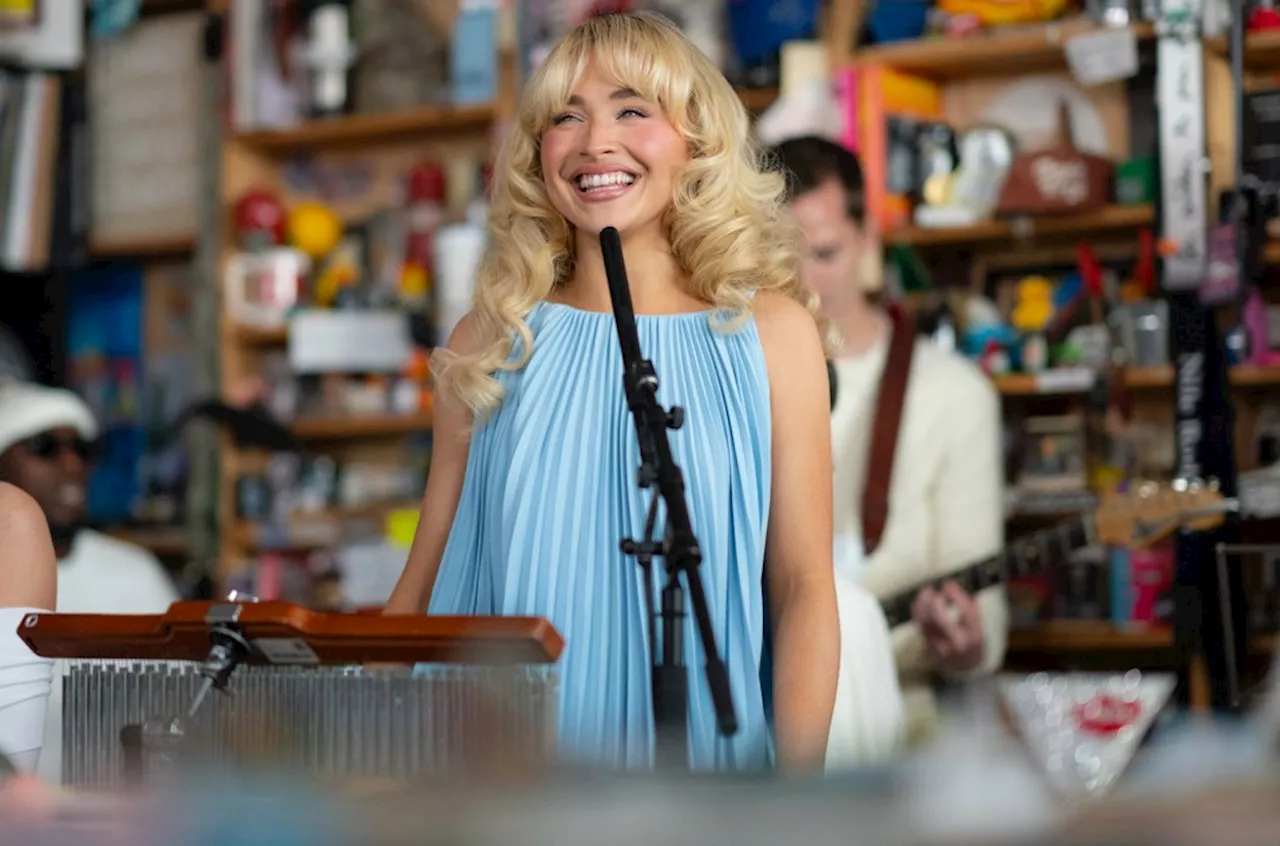 Behind the Scenes at Sabrina Carpenter’s ‘Tiny Desk’ Taping: 6 Things You Didn’t SeeBillboard caught the end of Carpenter’s Tiny Desk rehearsal, which wrapped about 20 minutes before the artist filmed her official performance.
Behind the Scenes at Sabrina Carpenter’s ‘Tiny Desk’ Taping: 6 Things You Didn’t SeeBillboard caught the end of Carpenter’s Tiny Desk rehearsal, which wrapped about 20 minutes before the artist filmed her official performance.
Read more »
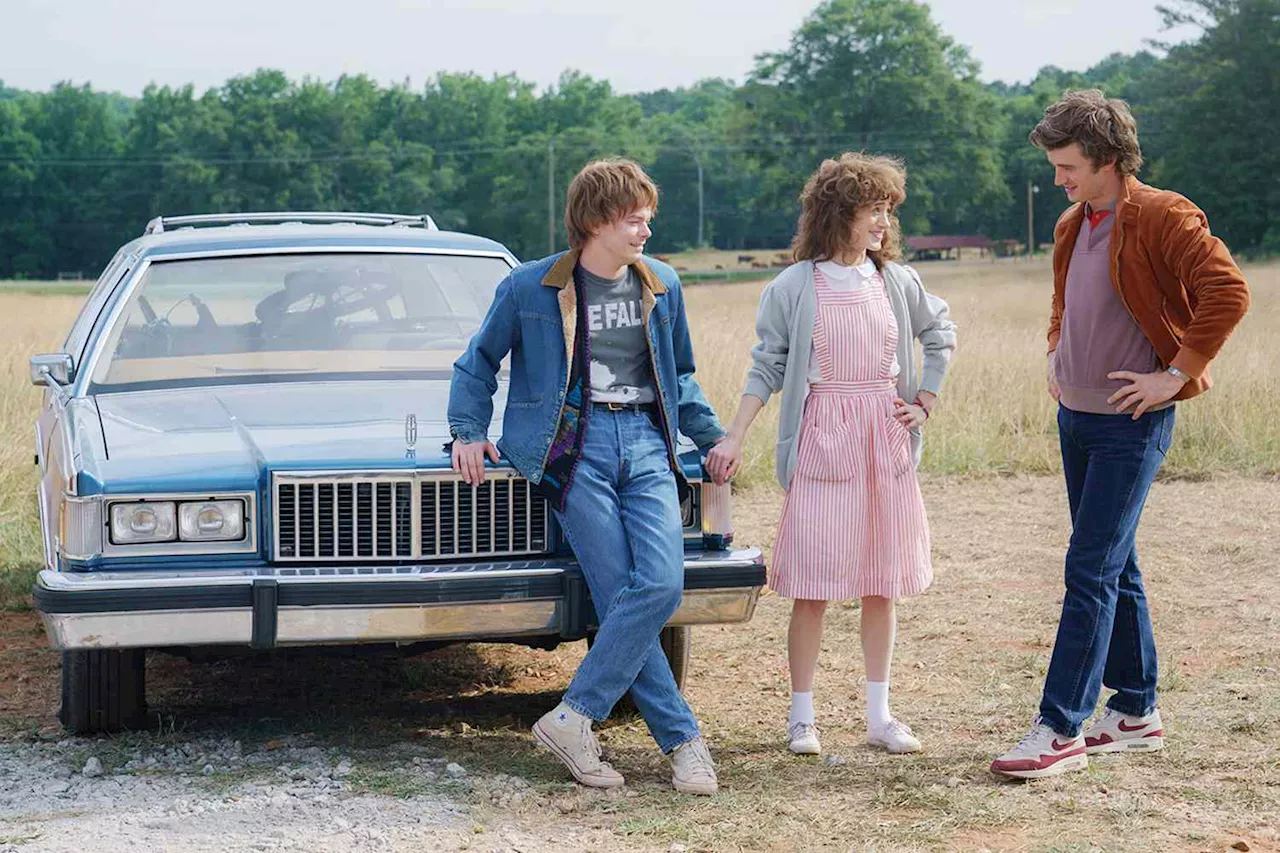 Stranger Things wraps, drops behind-the-scenes photos from final seasonProduction has wrapped on 'Stranger Things,' and Netflix just dropped 10 behind-the-scenes photos from the fifth and final season.
Stranger Things wraps, drops behind-the-scenes photos from final seasonProduction has wrapped on 'Stranger Things,' and Netflix just dropped 10 behind-the-scenes photos from the fifth and final season.
Read more »
